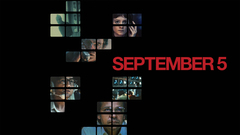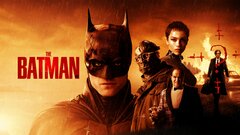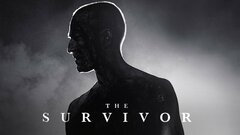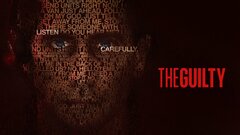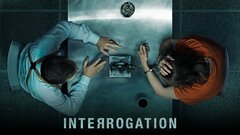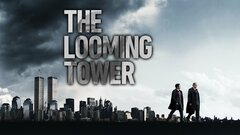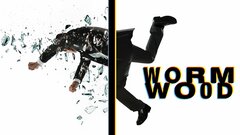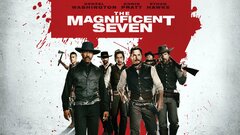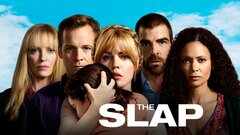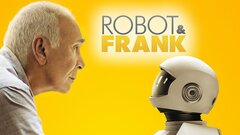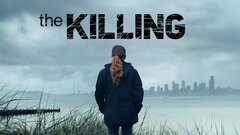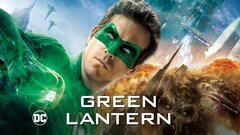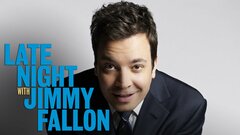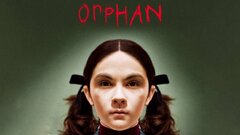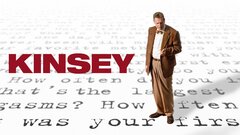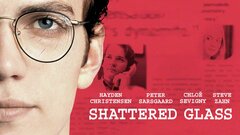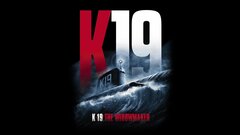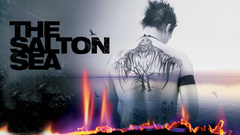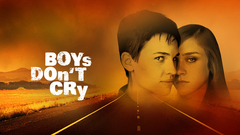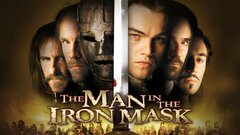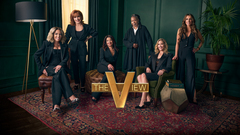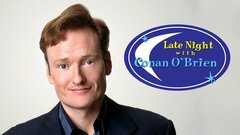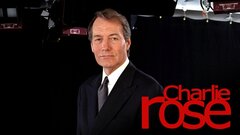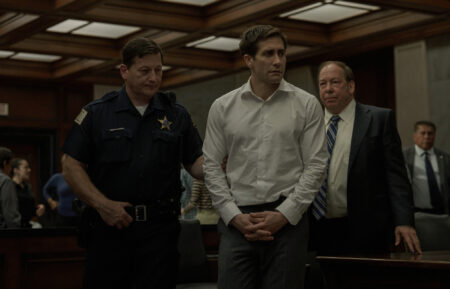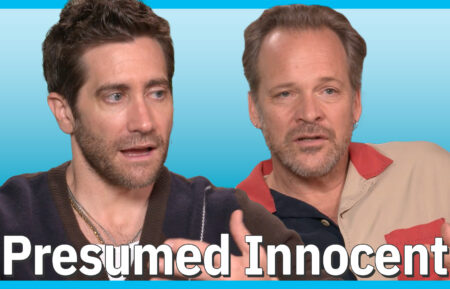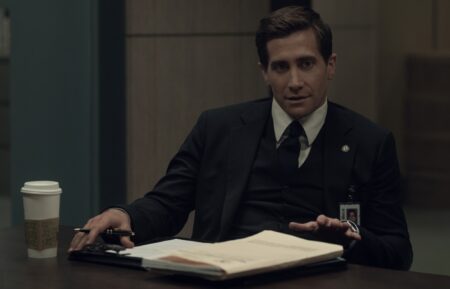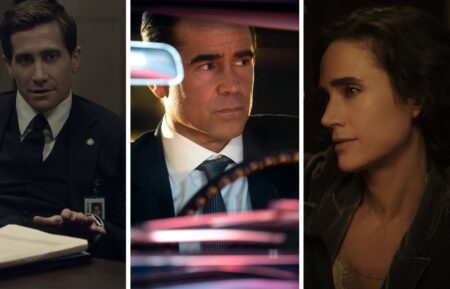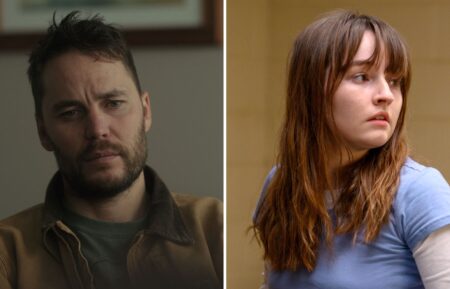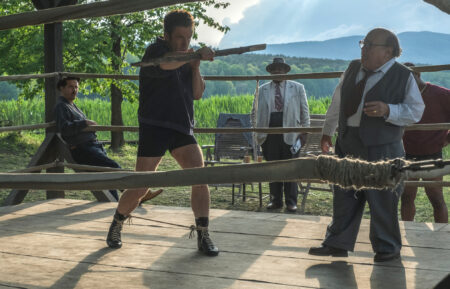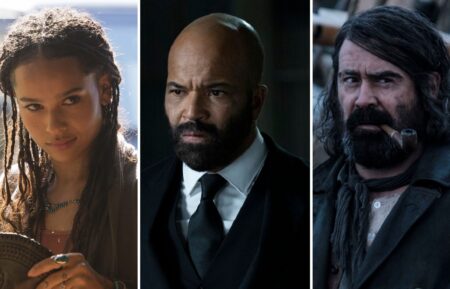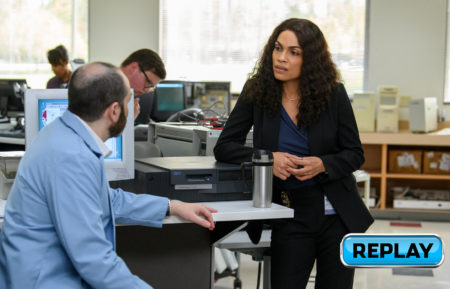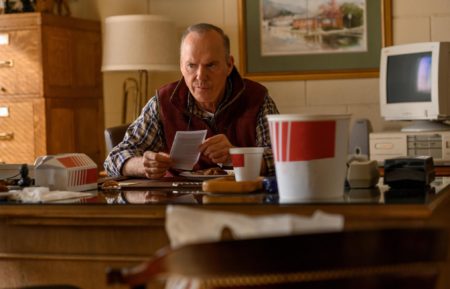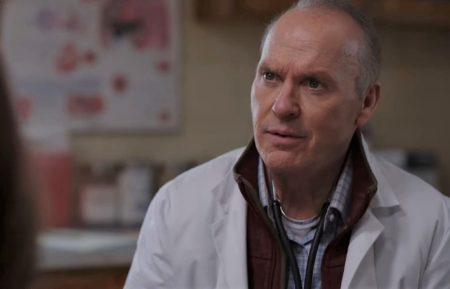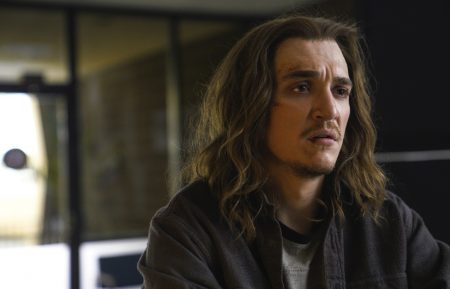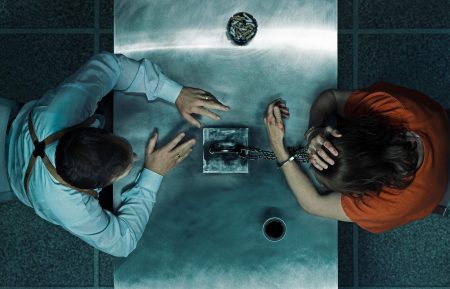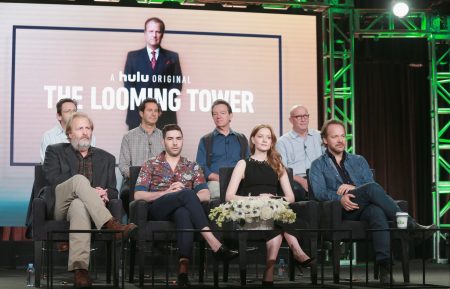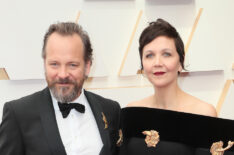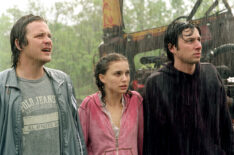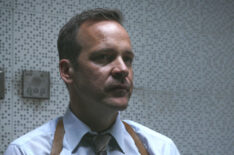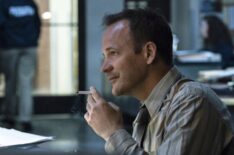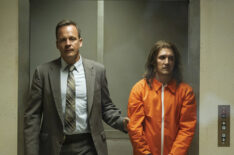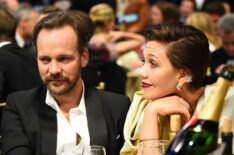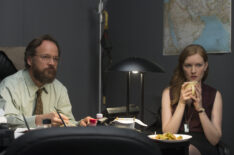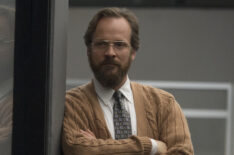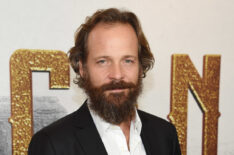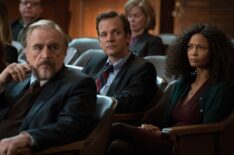An atypical actor who easily adapted himself in a variety of film and television projects, Peter Sarsgaard built a career disappearing into challenging and sometimes outright difficult roles most other actors might have avoided. Prior to his breakthrough playing a charming, but ultimately violent rapist and murderer in the indie drama "Boys Don't Cry" (1999), he quietly earned an impressive reputation on the New York theater scene, acting onstage in productions that including the Signature Theatre's "Laura Dennis" and his own play "The Greatest And Most Exciting Gratuitous Exhibition Ever Exploited." Sarsgaard made his biggest impression, however, with a subtle performance as a news magazine editor in "Shattered Glass" (2003), which gave the young, talented actor his first true taste of critical success.
From there, he easily alternated between studio features like "Flightplan" (2005), "Jarhead" (2005) and "Knight & Day (2010), as well as independents like "Year of the Dog" (2007) and the Oscar-nominated "An Education" (2009). His 2009 marriage to equally indie-respected Maggie Gyllenhaal cemented Sarsgaard's reputation as an intelligent, devoted actor pursuing art over fame.
Born on March 7, 1971 on Scott Air Force Base near Belleville, IL, Sarsgaard was raised an only child in a Catholic family that moved around the country numerous times, due to his father's work as an Air Force engineer. When he was young, Sarsgaard aspired to be a soccer player and took ballet after learning football players took dance to improve their game.
When he attended Fairfield College Preparatory School in Connecticut, Sarsgaard was exposed to the film world courtesy of the Jesuit priests who exposed students to foreign cinema like the Italian neorealists of the 1950s. Meanwhile, too many concussions playing soccer forced him to pursue other interests, which he found in writing and later, the theater. After Fairfield Prep, he attended Bard College for two years before transferring to Washington University, where he began performing on stage and formed the comedy improv group, "Mama's Pot Roast." He later moved to New Haven, where his then-girlfriend, Malerie Marder, studied photography. He became a frequent subject of her work, including a bizarre nude pictorial of him and Marder's mother.
Sarsgaard soon made his big screen debut with a small role as one of the murder victims of death row inmate Matthew Poncelet (Sean Penn) in director Tim Robbins' gripping prison drama, "Dead Man Walking" (1995). After moving to Los Angeles with Marder, only to break up with her and head back to New York, Sarsgaard appeared off-Broadway in "Kingdom of Earth" (1996) and was featured in a segment of the anthology series "Subway Stories: Tales From the Underground" (HBO, 1997). Following episodes of "Law & Order" (NBC, 1990-2010), he had a small, but pivotal role in "The Man in the Iron Mask" (1998), playing the doomed Raoul, son of Athos (John Malkovich) and suitor of Christine (Judith Godreche) whose death on the frontlines of war waged by King Louis XIV (Leonardo DiCaprio) leads to a mutiny led by three of the four Musketeers. Sarsgaard landed more small roles in gritty independents like "Another Day in Paradise" (1998) and "Desert Blue" (1998), with the charismatic actor turning in strong performances with little screen time.
With previous film work including turns as innocent victim and noble hero, Sarsgaard switched gears and essayed a disturbing supporting turn in Kimberly Peirce's powerful "Boys Don't Cry" (1999). This acclaimed and moving feature was based on the 1993 murder of Teena Brandon (Hilary Swank), a young woman living as a man in Falls City, NE. Sarsgaard's talents were showcased in the film by his appropriately intense and unnerving portrayal of John Lotter, the unstable friend convicted of raping and murdering Brandon after her identity as a biological female is exposed. He impressed both critics and audiences in the harrowing role, conveying both Lotter's winning charm as well as the underlying violence, which were evidenced by the character's erratic outbursts and the alarming brutality of his attack on Brandon. Taking a career step up, at least in terms of visibility, Sarsgaard co-starred opposite Jennifer Lopez and Vince Vaughn in the thriller "The Cell" (1999), and alongside Rupert Everett and Kathy Bates in "Unconditional Love" (1999), directed by P.J. Hogan.
Though he was making strides in his career, Sarsgaard was careful to avoid taking on roles that were less-than-challenging. Instead, he developed early on in his career a taste for starring in films most other actors would dismiss or seriously amend. He landed the leading role in Wayne Wang's erotic drama "The Center of the World" (2001), playing a successful dotcom entrepreneur whose technological immersion has left him devoid of human connection. But when he meets a stripper and rock drummer (Molly Parker), he embarks on a three-day trek to Las Vegas where the two explore the limits of their sensuality, despite her hard and fast rules of avoiding emotional involvement. He also had a noticeable turn as a meth addict in the kinetic indie crime drama "The Salton Sea" (2002), while supporting Harrison Ford and Liam Neeson as a cowardly nuclear reactor technician in the Soviet submarine thriller "K-19: The Widowmaker" (2002). Meanwhile, he co-starred in the urban crime drama "Empire" (2002), playing a slick stock market investor who draws drug dealer (John Leguizamo) into a world of trouble.
Sarsgaard had a major breakthrough with his performance in writer-director Billy Ray's compelling, but understated taken-from-the-headlines drama "Shattered Glass" (2003). In a well-measured story of journalistic ethics woven around the true case of wunderkind reporter Stephen Glass (Hayden Christensen), who fabricated several articles for major publications, Sarsgaard's nuanced performance as New Republic editor Chuck Lane served as the story's moral compass. The actor's realistic, uncompromising portrayal earned him considerable praise, as well as several critics' awards and a Golden Globe nomination for Best Performance by an Actor in a Supporting Role in a Motion Picture. Meanwhile, he deftly played the eccentric high school buddy of an emotionally numbed young man (writer-director-star Zach Braff) who returns home upon learning his mother has just passed away in the charming, off-kilter indie dramedy "Garden State" (2004). Sarsgaard had a memorable supporting role in "Kinsey" (2004), playing the bisexual assistant of the famed sexologist, Alfred Kinsey (Liam Neeson). He attracted considerable media attention not only for his performance, but also because of several scenes where he and Neeson kissed. When asked if his scenes were difficult, he said that he would rather do something awkward than physically exhausting.
Atypically, the usually restrained Sarsgaard was borderline over-the-top in his next film, playing a Southern lawyer in the gothic thriller "The Skeleton Key" (2005), starring Kate Hudson. In an effort to attempt something different, he provided a welcome presence as a U.S. air marshal who attempts to alternately calm and humor a frantic mother (Jodie Foster) who believes she's lost her daughter on an airline in "Flightplan" (2005). In "Jarhead" (2005), director Sam Mendes' insightful adaptation of former U.S. Marine Anthony Swofford's best-selling memoir of his service during the 1990 Gulf War in Iraq, Sarsgaard was pitch-perfect as Troy, scout to sniper Swoff (Jake Gyllenhaal) and a die-hard member of the Marine Corps who hopes to prove himself in combat. Offscreen, Sarsgaard became strong friends with Gyllenhaal prior to "Jarhead," thanks to his romantic relationship with the actor's sister, actress Maggie Gyllenhaal. Meanwhile, he earned critical kudos for "The Dying Gaul" (2005), in which he was a novice screenwriter who writes a love story about his partner dying of AIDS-related complications.
In 2006, Gyllenhaal gave birth to the couple's first child, Ramona.
After a supporting turn as an asexual animal rights activist in "Year of the Dog" (2007), Sarsgaard reunited with "Jarhead" co-star Jake Gyllenhaal for "Rendition" (2007), a political thriller that focused on the questionable CIA practice of transporting international terrorists to third world countries to be tortured and interrogated. He next co-starred in "Elegy" (2008), a psychological drama about a respected college professor who indulges himself in a relationship with a beautiful graduate student (Penélope Cruz). Sticking with independent cinema, Sarsgaard was finally seen in "The Mysteries of Pittsburgh" (2009), an indie drama in which he played a young man returning home for the first time after having been away at college. The film was shot three years prior to its release and was previously shown at the 2008 Sundance Film Festival.
In 2009, Maggie Gyllenhaal and Sarsgaard married in Italy. The same year, he appeared as the male lead in the successful "An Education" (2009). Playing a mysterious older man who bewitches an intelligent British teenager (Carey Mulligan) on the cusp of womanhood, Sarsgaard received good reviews and the film itself was showered with critical praise, strong box office and awards. His next film, the horror film "Orphan" (2009), was successful as well, but most certainly not equally beloved by critics. In the movie, Vera Farmiga and Sarsgaard adopt the mysterious Esther, who is hiding a shocking secret.
The actor followed this up with the big-budget "Knight & Day" (2010), as a federal agent opposite stars Tom Cruise and Cameron Diaz. In 2011, Sarsgaard continued his Hollywood stint as Dr. Hector Hammond, a misguided scientist who clashes with Ryan Reynolds' title superhero in "Green Lantern," a comic-book adaptation that was heavily dismissed. Revisiting far subtler small-scale fare, he voiced an endearing automaton in the dramedy "Robot & Frank" (2012), starring Frank Langella. In a notable about-face, Sarsgaard then portrayed manipulative pornographer Chuck Traynor in the biopic "Lovelace" (2013), featuring Amanda Seyfried in the titular role. Continuing a busy year, he also appeared in Woody Allen's acclaimed dramedy "Blue Jasmine" and turned up in episodes of "The Killing" (AMC 2011-13; Netflix, 2014) as imprisoned murderer Ray Seward.


